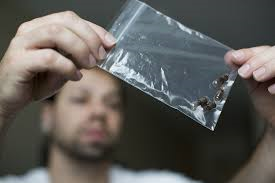
Breaking News
 US NAVY USELESS: China Activates "Land Route" to Drain Russian Silver
US NAVY USELESS: China Activates "Land Route" to Drain Russian Silver
 Lego's next-gen bricks make your creations interactive
Lego's next-gen bricks make your creations interactive
 Perhaps We Should Actually Be Focusing On Fixing America
Perhaps We Should Actually Be Focusing On Fixing America
Top Tech News
 The First Production All-Solid-State Battery Is Here, And It Promises 5-Minute Charging
The First Production All-Solid-State Battery Is Here, And It Promises 5-Minute Charging
 See inside the tech-topia cities billionaires are betting big on developing...
See inside the tech-topia cities billionaires are betting big on developing...
 Storage doesn't get much cheaper than this
Storage doesn't get much cheaper than this
 Laser weapons go mobile on US Army small vehicles
Laser weapons go mobile on US Army small vehicles
 EngineAI T800: Born to Disrupt! #EngineAI #robotics #newtechnology #newproduct
EngineAI T800: Born to Disrupt! #EngineAI #robotics #newtechnology #newproduct
 This Silicon Anode Breakthrough Could Mark A Turning Point For EV Batteries [Update]
This Silicon Anode Breakthrough Could Mark A Turning Point For EV Batteries [Update]
 Travel gadget promises to dry and iron your clothes – totally hands-free
Travel gadget promises to dry and iron your clothes – totally hands-free
 Perfect Aircrete, Kitchen Ingredients.
Perfect Aircrete, Kitchen Ingredients.
 Futuristic pixel-raising display lets you feel what's onscreen
Futuristic pixel-raising display lets you feel what's onscreen
 Cutting-Edge Facility Generates Pure Water and Hydrogen Fuel from Seawater for Mere Pennies
Cutting-Edge Facility Generates Pure Water and Hydrogen Fuel from Seawater for Mere Pennies
A Bitter Pill

Human feces floated in saline solution in a mortar, on a marbled countertop, in a dimly lit kitchen in Burlingame, California. A bottle of ethyl alcohol, an electronic scale, test tubes, and a stack of well-worn pots and pans lay nearby. The stove light illuminated the area as Josiah Zayner crushed the shit with a pestle, creating a brownish-yellow sludge. "I think I can feel something hard in there," he said, laughing. It was probably vegetables — "the body doesn't break them down all the way."
This heralded the beginning of Zayner's bacterial makeover. He was clad in a Wu-Tang Clan T-shirt, jeans, and white socks and sandals. At his feet, James Baxter, Zayner's one-eyed orange cat, rubbed its flank against its owner's legs. The kitchen smelled like an outhouse in a busy campground.
Over the course of the next four days, Zayner would attempt to eradicate the trillions of microbes that lived on and inside his body — organisms that helped him digest food, produce vitamins and enzymes, and protected his body from other, more dangerous bacteria. Ruthlessly and methodically, he would try to render himself into a biological blank slate. Then, he would inoculate himself with a friend's microbes — a procedure he refers to as a "microbiome transplant." Zayner imagines the collection of organisms that live on him — his microbiome — as a suit. As such, it can be worn, mended, and replaced. The suit he was living with, he said, was faulty, leaving him with severe gastrointestinal pain. A new suit could solve all that. "You kind of are who you are, to a certain extent," he said. "But with your bacteria, you can change that."

 Not Worth a Continental
Not Worth a Continental

